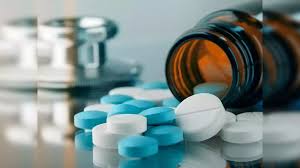Budget 2025 Import Duty Cuts on Essential Medicines
Current Affairs NationalPosted by newadmin on 2025-02-07 09:23:01 |
Share: Facebook | Twitter | Whatsapp | Linkedin Visits: 75

The Union Budget 2025 introduced significant changes to import duties on life-saving drugs, aiming to make critical treatments more affordable for patients in India. As part of this initiative, the government has completely waived import duties on 36 essential medications and reduced the duty for an additional six. While this move is expected to lower costs for patients, the majority of imported drugs remain under patent protection, keeping their prices high.
Currently, the basic customs duty on life-saving medicines is set at 5%. Under the new policy, 36 drugs used to treat cancer and rare diseases are now exempt from any import duty. Additionally, the import duty for six other life-saving drugs has been reduced from 7.5% to 5%. A further exemption applies to 37 drugs under patient assistance programs, benefiting individuals who rely on imported medicines for severe medical conditions.
In terms of taxation, all finished formulations of medicines in India attract a 12% Goods and Services Tax (GST). However, certain medicines for critically ill patients are subject to a reduced 5% GST rate. This tax structure is designed to balance the government’s revenue needs with the goal of ensuring affordable healthcare.
Despite these changes, more than 97% of medicines sold in India are off-patented and produced domestically. Only about 3% of the market consists of patented drugs, primarily imported. The reduction in import duties is expected to ease the financial burden on patients who require these critical treatments while ensuring that the domestic pharmaceutical industry remains unaffected.
India has solidified its reputation as the world’s pharmacy and ranks as the third-largest manufacturer of medicines. The country produces nearly all dosage forms and off-patented drugs, offering medications at a fraction of global prices. A global study indicates that Indian-made medicines are over 52% cheaper than international prices, making India a key player in the global pharmaceutical sector. This affordability has led to increased investment in drug research and innovation within the country.
To regulate drug pricing, all medicines sold in India—including imports—fall under the Drugs Price Control Order (DPCO). The National Pharmaceutical Pricing Authority (NPPA) oversees this framework, ensuring that essential medicines listed in the National List of Essential Medicines (NLEM) have fixed retail prices. This regulatory measure balances industry sustainability with patient affordability while simplifying procedural requirements for pharmaceutical companies.
The Government of India, in collaboration with regulators and the pharmaceutical industry, continues to push for affordable healthcare through various initiatives. Programs such as the Pradhan Mantri Jan Aushadhi Pariyojna and Ayushman Bharat focus on enhancing access to cost-effective medicines. Additionally, patient assistance programs led by drug manufacturers and charitable organizations contribute to the broader effort of making life-saving medications more accessible to those in need.
Search
Categories
Recent News
- Massive Development Push in Nellore Rural: 240 Projects, One Goal
- Unveiling the Truth: Maxwell Emails Validate Prince Andrew's Scandalous Photo
- Royal Courage: Kate Middleton's Cancer Battle and Message of Hope
- Solar Power Shines on Temple Lands
- Suryakumar's Resurgence: A Masterclass in Adaptability
- Andhra Pradesh Welcomes Massive Solar Investment
- Giannis' Loyalty Tested: The Bucks' Future in Question
- Ronaldo's Saudi Saga: A Looming Resolution?
Popular News
- Navigating IPO Market Dynamics Amid Volatility and Regulatory Changes
- Massive Worldwide Microsoft Outage Disrupts Multiple Sectors
- Panjapur Bus Stand to Reshape TNSTC Routes
- తెలుగుదేశం పార్టీ - పేదరికాన్ని నిర్మూలించడంలో వాగ్దానం
- Universities Embrace Remote Learning Technologies Amidst Ongoing Pandemic